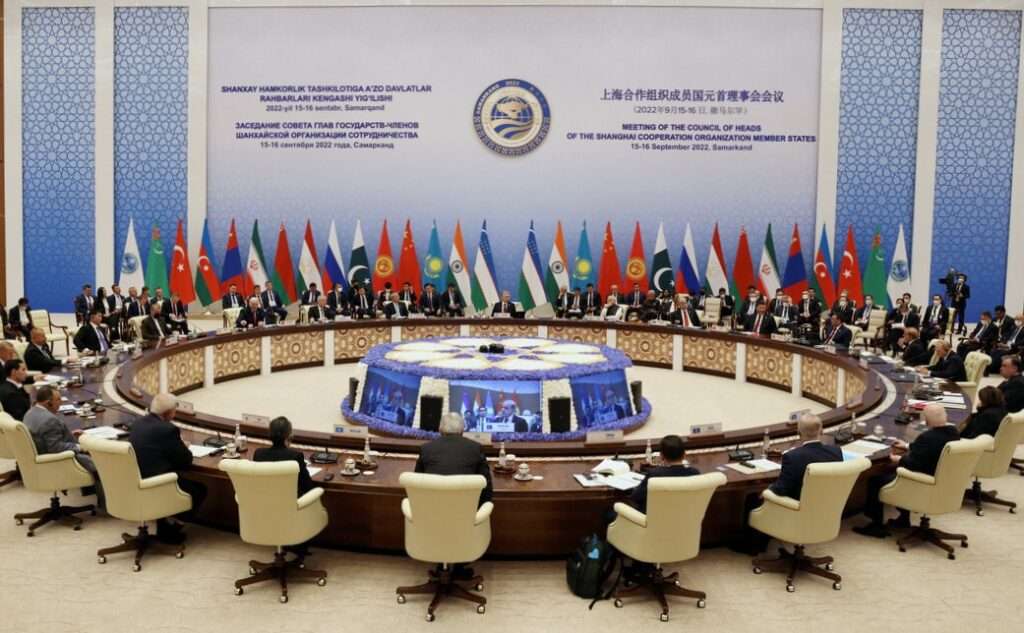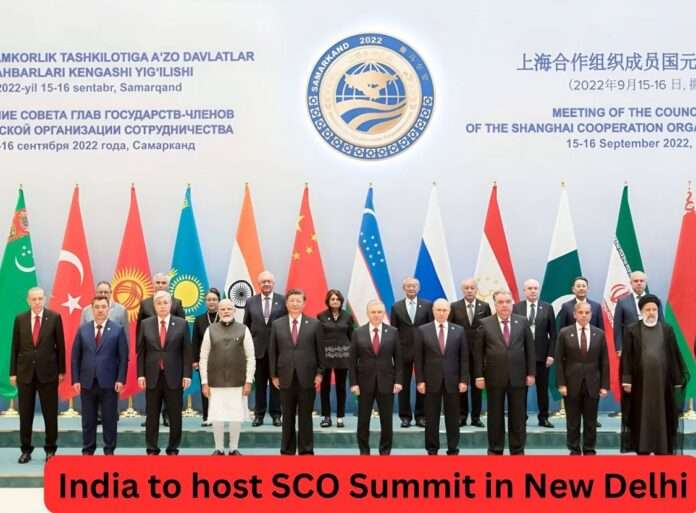The Shanghai Cooperation Organization (SCO) Summit has always been a platform for countries to come together and deliberate on regional peace, security, and socio-economic development. However, this year in early May 2023 the summit was held in an air of tension, palpable even from the sidelines as the political vacuum between India and Pakistan became glaringly apparent. Both India and Pakistan, full members of the SCO since 2017, have historically been two of South Asia’s most significant powers. Their interactions, or lack thereof, directly influence the geopolitical landscape of the region and they have had strained relations for decades, and the recent frosty exchange at the SCO summit only highlighted the widening gap between them.
The political vacuum between India and Pakistan is not just a bilateral issue anymore; it is a concern that resonates across the SCO, impacting the regional stability and cooperation this organization strives to achieve. This vacuum is creating a space where misinterpretations and misconceptions can thrive, exacerbating the hostility between the two countries and potentially influencing other nations within the SCO.
What makes this vacuum even more concerning is its potential to influence the regional terrorism policy. South Asia has been a focal point of terrorism-related concerns, and the region’s policy to combat this menace has often hinged on the cooperation and shared understanding between India and Pakistan. However, with the growing estrangement between these two one cannot help but wonder about the future of the counter-terrorism policy in the region.
The question of how this political vacuum might impact the development of a unified counter-terrorism strategy is crucial. Given that both countries have a vested interest in combating terrorism, the lack of open channels for dialogue may lead to disjointed efforts, thereby weakening the overall counter-terrorism stance of the region.
Moreover, the lack of engagement between India and Pakistan at the SCO summit could have broader implications for regional dynamics beyond the counter-terrorism front. It could affect various other areas of cooperation such as economic integration, climate change mitigation, and energy security, which are all vital for the stability and prosperity of the region.
The SCO, as a regional organization, has a significant role here and has the potential to bridge this vacuum and bring India and Pakistan closer to dialogue. However, this would require a delicate balancing act. The SCO will need to ensure that it does not appear to be taking sides while encouraging dialogue and cooperation between these two powers.
Pakistan’s counter-terrorism policy has been a focal point of this standoff, as it attempts to balance its own internal challenges with the broader geostrategic forces at play. For years, Pakistan’s counter-terrorism strategies have been deeply influenced by the so-called “war on terror,” an American concept that arguably worsened the situation for the country. The war on terror, often referred to by its acronym, WOT, entrenched extremism and terrorism deeper within the Pakistani society, making it an even more complex issue to address. To confront this spread, Pakistan has been urged to develop a homegrown counterterrorism approach that is more nuanced and holistic, one that is free from the vestiges of American involvement.
The political vacuum between India and Pakistan, as evidenced at the SCO summit, is not just a bilateral concern but a regional one.
This perception is not without cause. Several of Pakistan’s domestic initiatives were viewed by many Pakistanis as part of a larger U.S. strategy. For instance, the decision to station paramilitary Frontier Corps troops on the Afghan border, the banning of Pakistan-based militant groups focusing on Indian-controlled Kashmir, and the implementation of reforms in conservative madrassas were all seen as part of a broader American plot. This narrative was further bolstered by U.S. drone strikes in the former Federally Administered Tribal Areas (FATA) region, strengthening the impression that Islamabad was fighting Washington’s war, not its own.

Moreover, Pakistan has been the primary victim of terrorism in the region. In the last two decades, as many as 80,000 Pakistan is have lost their lives in the war on terror, and Pakistan has incurred a massive $150 billion in economic losses. Those numbers do not encompass the damage to Pakistan’s reputation and its pluralistic ethos.
Yet, it is clear that terrorism in Pakistan is partly the outcome of its own problematic regional policies, particularly those pursued in Afghanistan since the 1980s. These mistakes, however, are not the sole drivers of extremism anymore. New factors have emerged over the last 20 years, primarily linked to socio-economic grievances, political alienation, ethnic marginalization, the country’s complex identity crisis, and the quest of Pakistani youth for a sense of belonging.
The struggle against extremism in Pakistan is intrinsically tied to the nation’s historical identity crisis—whether it was created to be a theological or a moderate Muslim state. This dilemma has been further complicated by the appeasement of the religious right by successive civilian and military regimes since Pakistan’s creation in 1947, thereby granting these forces outsized ideological clout. If this debate is not settled, various Sharia movements will continue to appear and reappear, again and again, in different forms. In this complex landscape, the role of Islamist ideology and narratives in fostering extremist violence in countries like Pakistan is often exaggerated. While Islamist ideology and narratives can provide a moral cover to legitimize extremist violence, it is important to remember that as a religion, Islam itself is not inherently violent.
In conclusion, the political vacuum between India and Pakistan, as evidenced at the SCO summit, is not just a bilateral concern but a regional one. It is a situation that could shape the future of South Asia’s counter-terrorism policy and other crucial areas of cooperation. The SCO, therefore, must step up to the challenge and promote dialogue and understanding between these two significant powers. Only then can we hope for a more stable and prosperous South Asia.
This complex political situation underscores the importance of diplomacy and dialogue in resolving long-standing issues. As the dust settles post-summit, the onus is on the leadership of both nations, and the SCO, to address this vacuum. The future of regional cooperation in South Asia may well depend on it.





